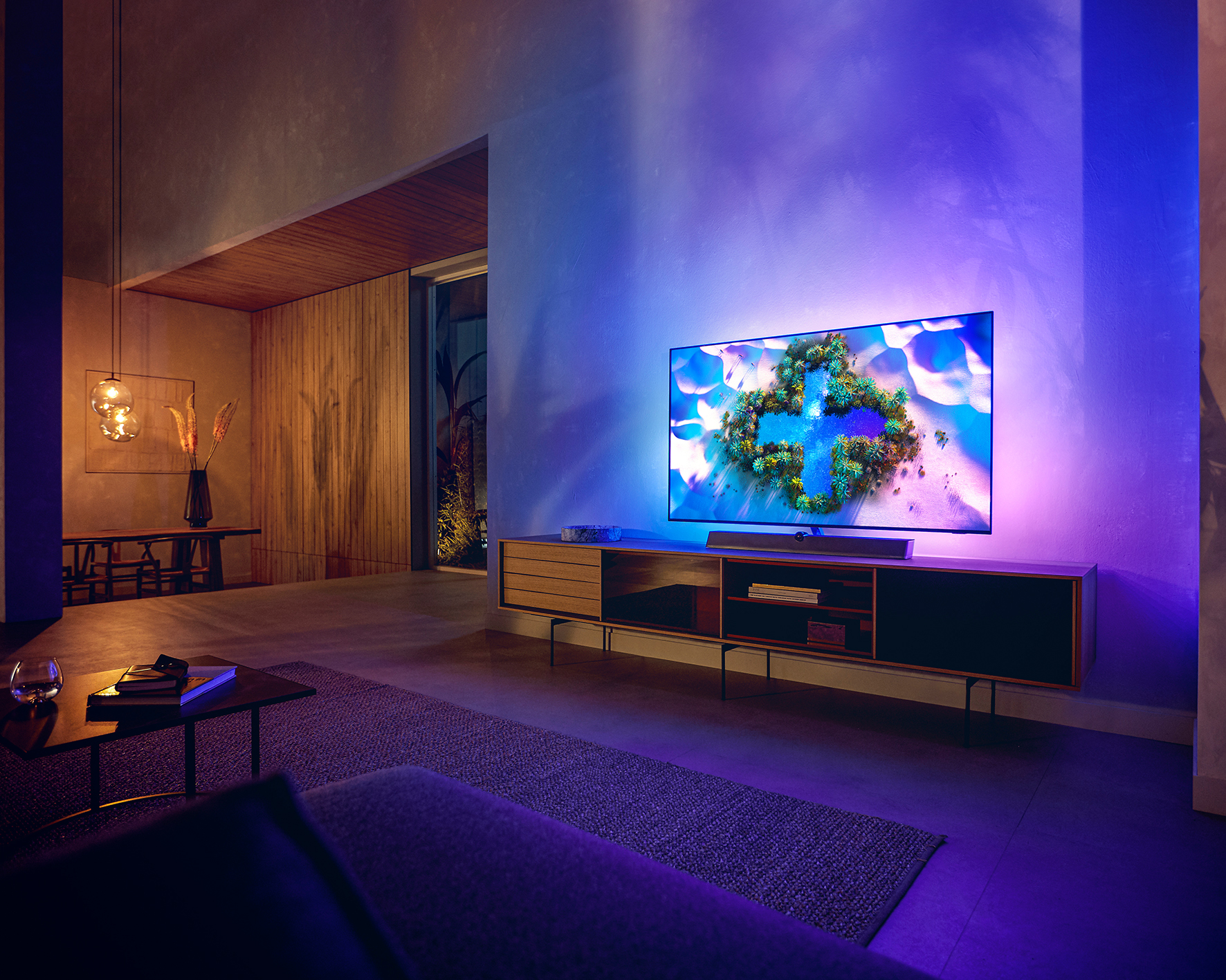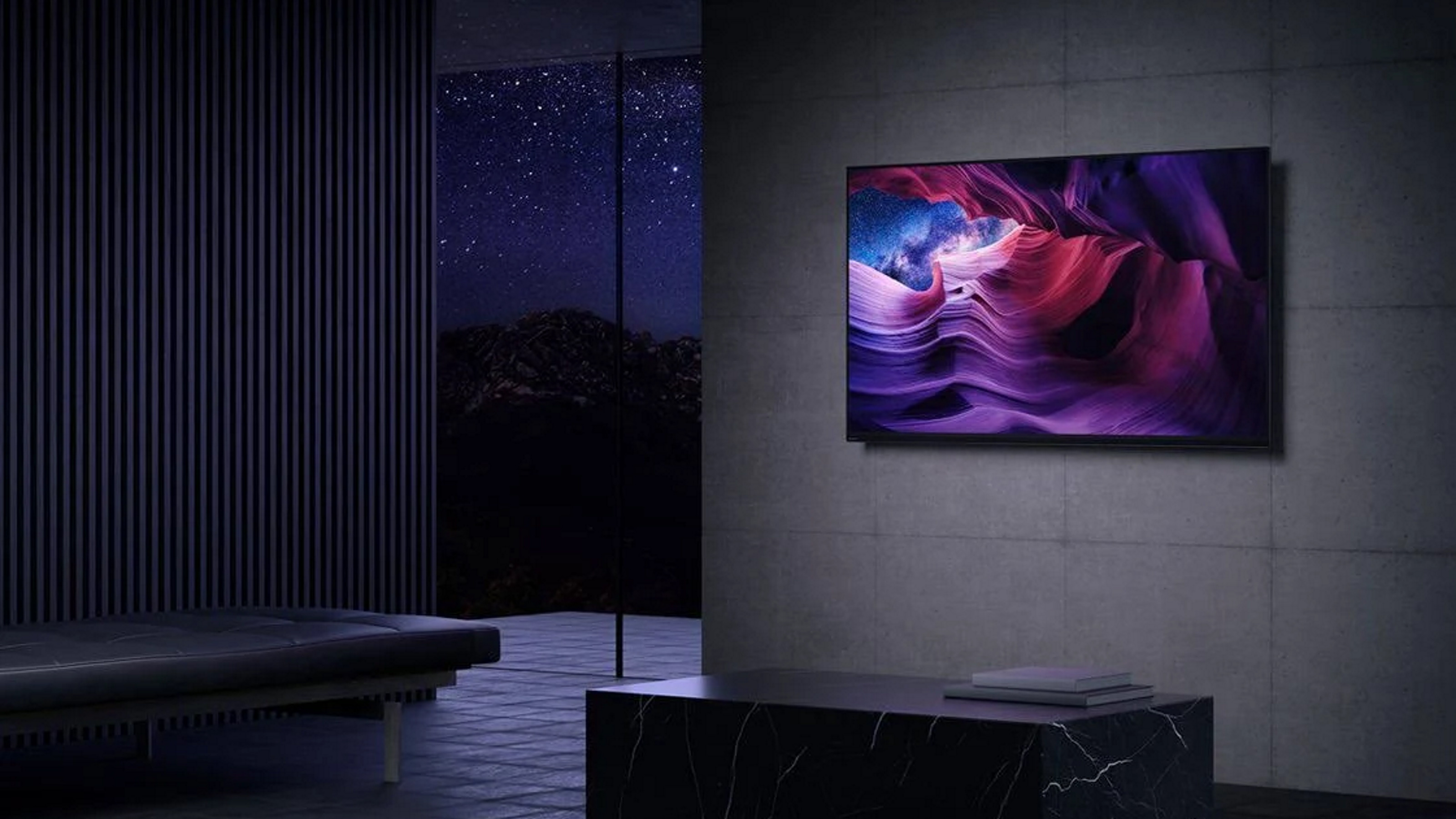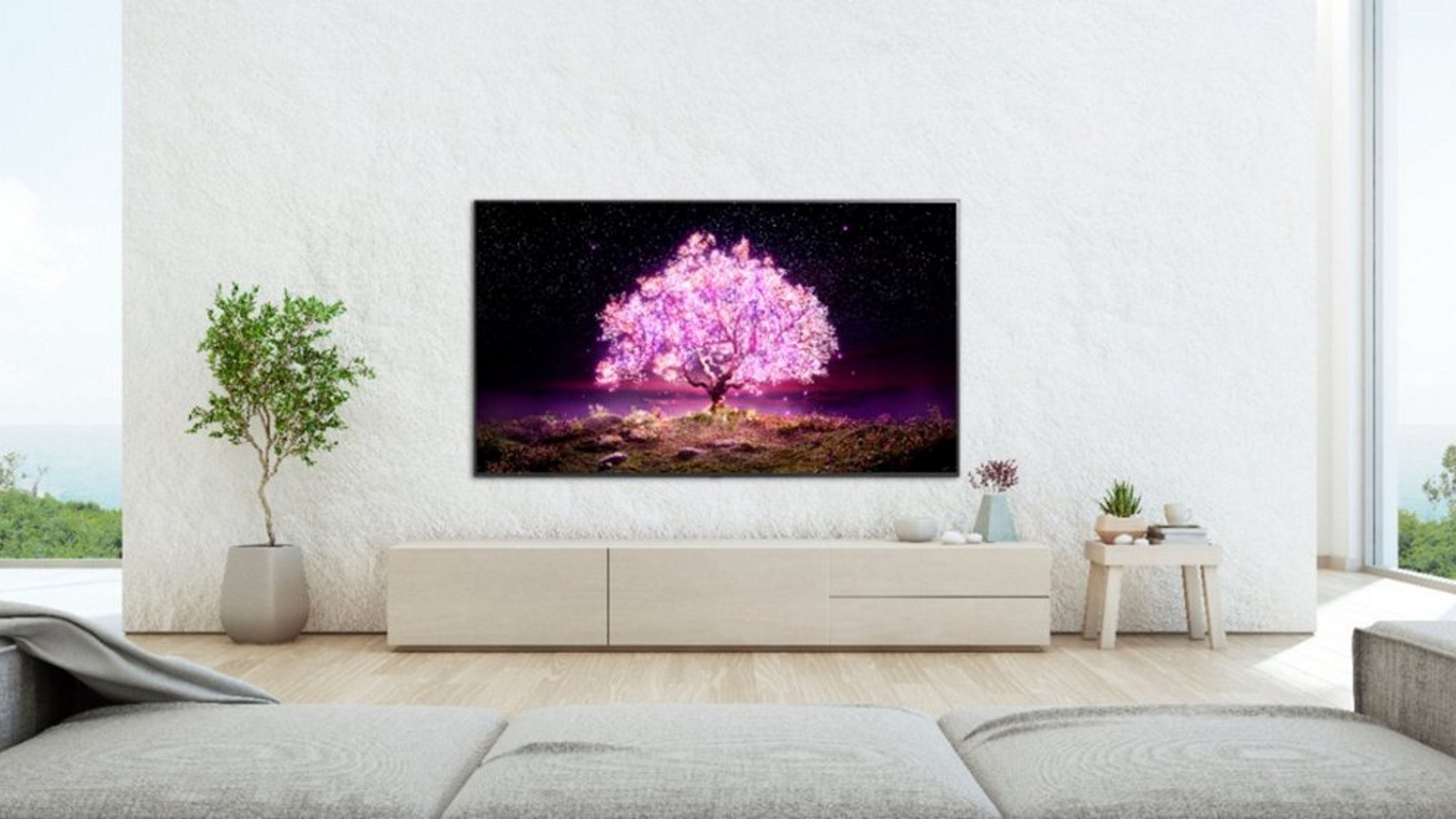Is an OLED TV Worth It? I've Been an Owner for Years — Here's What's Different About Them Now
Cinephiles around the world praise OLED screens as the best for home theaters, and things have improved a lot in recent years


The Livingetc newsletters are your inside source for what’s shaping interiors now - and what’s next. Discover trend forecasts, smart style ideas, and curated shopping inspiration that brings design to life. Subscribe today and stay ahead of the curve.
You are now subscribed
Your newsletter sign-up was successful
Millions of happy cinephile owners would tell you that yes, an OLED TV is certainly a good investment, but it's too simple to say that these high-performance TVs are perfect for everyone.
If you're out to buy one, there are still drawbacks to consider: price, brightness and reliability. And rival technology might sway you, too. Comparing Mini-LED vs OLED, the former has also come on in leaps and bounds.
That said, things have certainly changed a lot since I first wrote this article questioning whether OLEDs were worth the money back in 2022. Not in my personal circumstances — I'm using the same 2020 OLED TV as it was two years ago — but in terms of OLED technology. In short, OLED TVs are brighter than ever, and come with more built-in precautions to protect against burn-in.
This article will cover why cinephiles like OLED panels so much, their drawbacks, and recent developments that make them a safer bet in 2024. It will also look at pricing, and what you should look for when buying.
What Are the Pros and Cons of OLED TVs?
Pros:
- Vibrant colors
- Pure blacks
- Infinite contrast
- Wide viewing angles
Cons:
- Expensive
- Not as bright as rivals
- Can be reflective
- Questions about burn in remain
What is OLED TV Tech?

OLED TVs’ big advantage is that, unlike other televisions, each pixel is self-illuminating. In other words, while other screen tech requires backlighting, each pixel on the OLED screen generates its own light and color.
The Livingetc newsletters are your inside source for what’s shaping interiors now - and what’s next. Discover trend forecasts, smart style ideas, and curated shopping inspiration that brings design to life. Subscribe today and stay ahead of the curve.
While that makes the screens more energy efficient for dark scenes — a perk that’s not to be sneezed at with electricity prices creeping up — the main advantage is in terms of picture quality.
Put simply, the fact that each pixel lights itself means that the contrast of OLED TVs is literally infinite, because they can turn themselves off to offer true black — the same black you’d see if your set was switched off.
Even if a turned-off pixel is next to one that’s brightly lit up, the light won’t bleed over, making for a simply incredible image. With backlit TVs, what you’re really getting is actually a very dark grey which means that images just aren’t quite as good, especially atmospheric scenes with plenty of shadow.
There are three other less significant bonuses. The first is that OLED technology generally offers more flexibility with viewing angles. You have to sit at quite an uncomfortable angle before colors distort, which is perfect if you can’t always guarantee the best seat in the house on family movie night.
The second is a plus for gamers: response times are far better than LED screens, meaning that the inputs on your gamepad will be near-instantly replicated on screen.
Finally, because they don’t need a backlight panel, OLED screens are about as thin as you can get. Scarily thin when you’re pulling your brand new panel out of the box for its initial setup, in fact — but worth it when it’s in place, looking all stylish.
What are the drawbacks to OLED TVs?

Firstly, OLED TVs are expensive. You undoubtedly pay a premium for the technology and if you’re not a dyed-in-the-wool cinephile you might consider it overkill for your needs.
That’s a completely legitimate view, especially with QLED (or better still: Mini-LED) tech offering a picture that’s more than ‘good enough’ without the other drawbacks.
The second issue is brightness. Because each pixel is individually lit, there’s no backlight and that means that even the brightest OLED TVs don’t get all that bright. That, in turn, means that if you have an OLED TV in a bright room, you may find it's hard to see, unless you invest in some heavy-duty blackout drapes. The image simply may be unwatchable during the day if light is beyond your control, and in-room lights have a nasty habit of reflecting, too.
Note that this has been somewhat addressed in 2024 by the arrival of QD-OLED TVs. The 'QD' stands for Quantum Dot, and as these are more efficient than the traditional OLED color filters, less brightness is lost in the color-changing process. This year's sets can reach levels never seen before — though that's still around half what QLED panels can achieve.
Finally, if you do any online research, you’ll inevitably find some people questioning OLED life expectancy due to the risk of burn-in. That’s where static images (think news tickers, sports scores, channel logos or in-game HUDs) are left in place so long that they ‘burn in’ an outline onto the screen that’s visible forever more.
This historically has been a problem, but is largely assumed to be a non-issue in 2024 due to software tweaks and the aforementioned dimness of panels reducing the overall risk. Modern OLED TVs have all kinds of protections to limit the risk of burn-in, including screensavers, better heat control systems, dimming on fixed images and subtle shifting pictures.
While hardcore extended stress tests prove that even modern sets can suffer from burn-in, it's generally accepted that this is abnormal use and unlikely to be replicated in the home.
All the same, if you're paranoid, you may want to try and find an insurance policy that covers this just in case, as I did (most manufacturers’ warranties don’t.)

Freelance contributor Alan has been writing about tech for over a decade, covering phones, drones and everything in between. Previously Deputy Editor of tech site Alphr, his words are found all over the web and in the occasional magazine too. He often writes for T3 and Tom's Guide. A proud owner of an OLED TV, we asked him for the lowdown on whether they're a worthy investment.
OLED price and competition
One of the big drawbacks mentioned above is, of course, price. And there's no sugarcoating it: you undoubtedly pay a premium if you opt for OLED.
While you can buy a massive 75-inch QLED for under $500, even a heavily discounted 48-inch OLED panel will cost close to $1,000. You're looking at $1,400 and up if you want 55 inches or more, and even more if you want the fancy, brighter Quantum Dot panels I mentioned above. The smallest available Samsung S95C QD-OLED comes in at $1,800 and the Sony Bravia A95L starts at $2,800.
Like all technology, these prices have fallen over time and will continue to do so. New panels tend to emerge early in the year, so it may be worth holding off until October/November time (Black Friday TV deals, especially!) when retailers may be keen to clear stock.
Of course, you can save money by shopping for previous generations. Though I'd caution against a pre-owned OLED TV unless you can get a good look at it working first, and check for the dreaded OLED burn-in. Even then, it may be a false economy: older sets have weaker burn-in protections, and you potentially miss out on newer features, too.
Another way you can save money is by opting for a Mini-LED TV. While these aren't quite as good as OLED for contrast and picture quality, they're streets ahead of traditional LED sets thanks to thousands of LED backlights measuring less than 0.008 inches each.
Crucially, they're far less prone to burn in, get a whole lot brighter and are significantly more affordable. How affordable? The Hisense U8N Mini-LED TV, at the time of writing, 55-inch model is (just) under $1,000. A enormous 85-inch version is only $800 more.
What to look for in an OLED TV
When it comes to TVs, a list of specifications can only tell you so much. Almost all are at least 4K resolution (with some hitting 8K) and support HDR in some fashion.
That's especially true for OLED screens, as specs lists usually don't mention brightness and can't be expected to cover more subjective measurements like reflectiveness. Equally, specs lists often don't make the distinction between QD-OLED and OLED — which, as I've covered above, is quite a big deal.
For that reason, not only should you consult reviews of any model you're interested in, but examine the TV in person, if possible. Do bear in mind, however, that the lighting of a store's electrical department is likely very different to what's in your living room. Consider flashing a torch on screens to assess their reflectiveness.
Finally, buy from a store with a good, no-quibbles return policy. That way, if you get it home and it doesn't work out, you can easily sub it out for something that does.
Is an OLED TV Worth It?

I mentioned earlier that I am the proud owner of an OLED screen — in my case the 65-inch version of the now somewhat dated 2020 LG BX. I would say that, despite the above concerns, the answer is yes, if money isn’t an object, you can invest in one of the best TV brands and your conditions are right for it.
I write that as someone for whom the latter isn’t completely true, too. The screen is pretty reflective, and it sits in a room with skylights and glass patio doors streaming light in during the day. That undoubtedly makes it a tough watch in summer, unless you have some decent blackout drapes and don’t mind blocking the sun like a vampire film buff.
But the OLED screen really has spoiled other TVs for me. When I’m at my parents’ house or even at the cinema, the image quality is simply nowhere near as good and has me pining for my living room.
Ultimately, I can’t give a stronger endorsement than that. And no, still no sign of burn-in after three-and-a-half years of service.

Freelance contributor Alan has been writing about tech for over a decade, covering phones, drones and everything in between. Previously Deputy Editor of tech site Alphr, his words are found all over the web and in the occasional magazine too. He often writes for T3 and Tom's Guide. When not weighing up the pros and cons of the latest smartwatch, you'll probably find him tackling his ever-growing games backlog. Or, more likely, playing Spelunky for the millionth time.